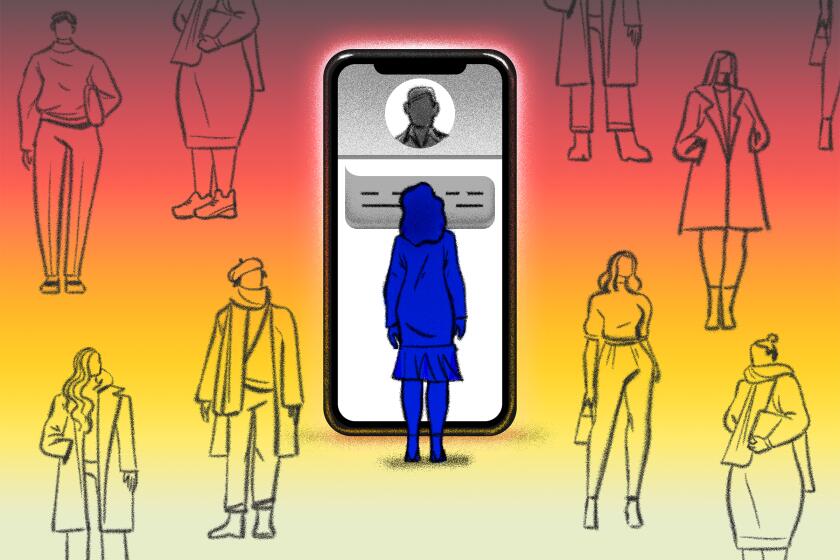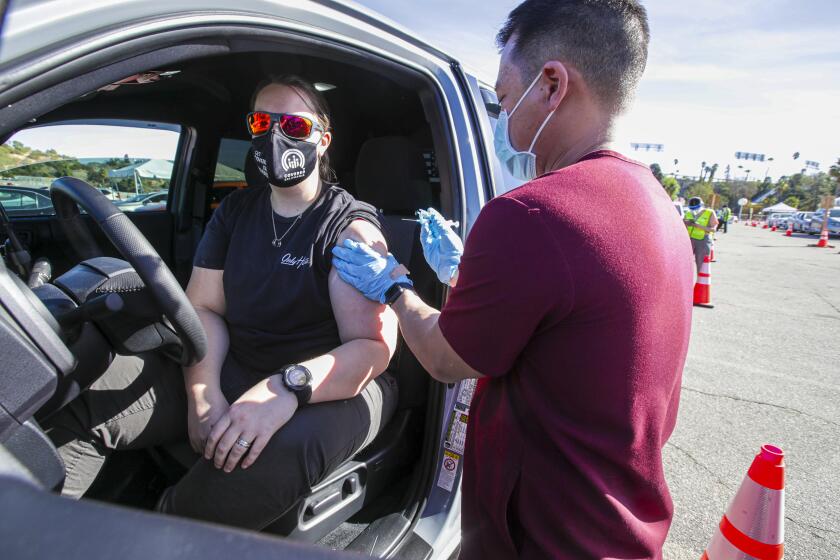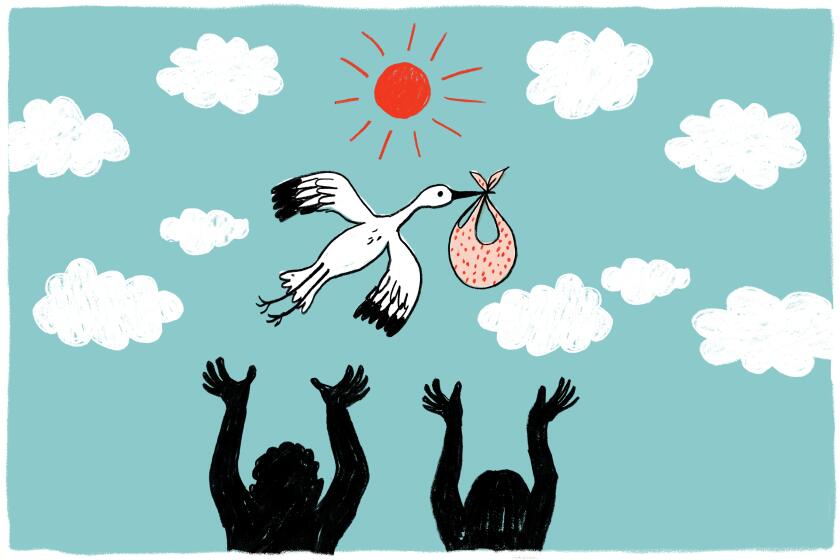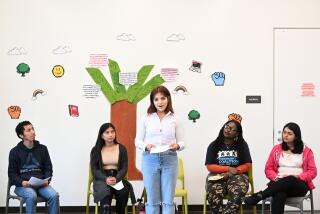I can’t travel, but a girl can dream. So I’m learning Italian until the day I can fly

Every morning, for half an hour, I go to Italy.
I roll my Rs and gesture emphatically while chatting with market vendors about winter produce, cafe owners about my travels and my summer romance about our wildest dreams.
Except I’m really on my couch in Los Angeles. The Duolingo language-learning app chirps on my phone while my mind wanders somewhere between a farm in Tuscany and a beach in Sicily.
Most of my 20s were wasted on rummaging through the miserable wreckage that is the L.A. dating pool. But I thought this guy was different.
I don’t pretend that practicing a language online is as thrilling as speaking it in the native country — just like celebrating New Year’s Eve on Zoom was nowhere near the same as clinking glasses and tossing confetti into a crowd and we all know it.
Still, I’m thankful for my COVID-era quest to study Italian. My brief lessons have been a fanciful escape from a bleak reality. With a change in inflection and a little bit of imagination, I’m somewhere and someone else entirely.
My language journey began two summers ago when I moved to Florence for a year of culinary school. A month before I left, I downloaded Duolingo and practiced the phrase “The monkey eats the banana” just shy of 74 times.
I am in Florence, Italy, at culinary school, in a country besieged by the virus. Should I stay or should I go? There is no wrong answer.
Through a combination of increasingly advanced lessons and blundering in-person conversations, my Italian improved. I can now say that the monkey ate a banana yesterday, will eat another banana tomorrow and would like to eat a banana every day for the rest of its life.
When the world turned upside down last spring, I found myself locked down in Florence. Surreally, businesses were closed and streets were empty, but I gained enough confidence in verb tenses and vocabulary to have some delightful exchanges during my travels in Italy’s relatively restriction-free summer.
I landed back in the States in the fall and was enthusiastic about my studies at first, starting each morning with a coffee and a lesson just as I had in Florence. But as the weeks went by, worries about work, coronavirus and a million other things clouded my vision of mastering a language that felt less useful and further from my grasp each day.
Dodger Stadium and other mass vaccination sites will be key in California’s effort to accelerate its COVID-19 vaccination rate.
Yes, there is now a vaccine, but I still have no idea when I’ll be able to go back to Italy and show off how well I can say “cinquecentocinquantacinque,” or 555.
That’s exactly why I have to keep practicing.
While everything else is up in the air, my short-term and long-term language goals — dabbling in the subjunctive today and fantasizing about full-fledged fluency five years from now — have been a constant. I can’t plan much, but I can find comfort in knowing that someday these little lessons will lead me somewhere really exciting.
As for my study methods, I am still benefiting from practicing amusing, but admittedly not very useful, Duolingo-generated phrases. I may never have the occasion to say, “My snake eats your cakes,” nor the gall to declare, “Your skirt is out of style,” but these whimsical sentences have helped me understand Italian syntax and find laughter in the process.
When we arrived in China to pick up our adopted daughter, we found out she had chickenpox. The days of waiting were the most anxious of our lives.
The more I learn, the more imaginative my language-spurred daydreams become. I’ll change my tone of voice to embody different moods (Playful? Irritated? Incredulous?) and alter pronouns so I can speak to new, imaginary characters; in one lesson I’m wistfully telling a lover that I think often about the place where we met, and the next I’m divulging to a priest that I do not believe in ghosts.
I’ve also found ways to weave Italian into my daily habits. I listen to the women-led podcast “Con Parole Nostre” while walking or driving, and I watch the Italian Netflix series “Baby” before bed, alternating between English and Italian subtitles and relishing the entirely new dialect that is teen slang. I even got a part-time job at an Italian grocery store, and there is nothing better than the feeling of understanding and being understood when I chat with coworkers.
One great thing about learning a language during an exhausting pandemic is that it requires no physical exertion. I can lie in bed hungover, half asleep and crushed by the weight that was 2020 yet still manage to whine, “Perché è tutto così difficile?” It does, however, require discipline, motivation and hope, and it has taught me a special strain of resilience at a time when giving up is so tempting.
With a new year begun and 20 months of Duolingo under my belt, it’s time for a change. Moving forward, I plan to crack open my dusty Italian textbook and sign up for virtual chats until I can enjoy one of the sweetest things about language learning: community. Someday soon, I’ll meet a fellow learner or two for a cappuccino and conjugations, and all of this solitary studying, this gesticulating alone on my sofa, will have been well worth the effort.
More to Read
Sign up for The Wild
We’ll help you find the best places to hike, bike and run, as well as the perfect silent spots for meditation and yoga.
You may occasionally receive promotional content from the Los Angeles Times.













